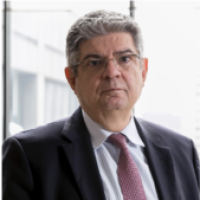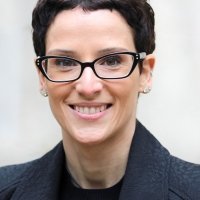Will Brazil Go Right or Left?
Will Brazil Go Right or Left?
The Shattering of the Political Center and the Implications for
Brazil's Economic and Political Outlook
Following the first round of the election on October 7, Brazil faces a stark choice in the presidential runoff between far-right Congressman Jair Bolsonaro and the leftist former Mayor of São Paulo Fernando Haddad. The presidential race has been characterized by an environment of fear and political intolerance. Yet the critical challenges that will confront the victor demand moderation and an ability to appeal to the majority of Brazilians who fall closer to the middle than the extremes of the political spectrum. Given the deteriorating fiscal situation, the next government will need to act quickly to reassure Brazilians and the world that it is up to the task — a task made all the more challenging by the deep partisan divide and widespread popular frustration with the failed political system and political leaders.
The Brazil Institute hosted a discussion on potential economic and political scenarios based on the two final presidential candidates and considered what might lie ahead for the country after the end of this divisive election cycle.
Selected Quotes
Paulo Sotero
"The party structure in Brazil, the political system that was already exhausted, basically imploded, and we have to figure out how to move forward with the remnants of that."
Fernando Rodrigues
"If the far-right candidate Jair Bolsonaro wins on October the 28th, I have no doubt in my mind that he will have approximately 300 to 350 Congressmen supporting him in the House." "In a way, history is repeating itself, because here in the United States, you had not the same situation, but a very similar situation when Donald Trump was at a certain point being portrayed just as something that would not happen... but when election day came, Trump was elected." "I think [Bolsonaro] will strive to do some sort of social-pension-funds reform even before he is actually inaugurated on the 1st of January, 2019... If he wastes that opportunity, that will be very bad for him."
Antonio Britto
"Except inflation, we have the same old problems: unemployment, violence more than ever, corruption more than ever." "What we are facing, in my opinion, isn't a defeat of the democracy... We are going to be a mess, a democratic mess." "The question isn't democracy or not. The question isn't right or left. The question is [can we] work in a rational way to solve old problems with the structure of the State?"
Monica de Bolle
"In the past, in Brazil and other places in Latin America, whenever you saw populists or populist messages, they always had to do with some magic formula that these governments were going to put in place to re-distribute income... This time around, we have a populist that isn't talking about income distribution. He's talking about something else that has become hugely relevant for the Brazilian electorate, and that's the issue of violence, public security, and law and order." "[Bolsonaro's] main solution is give people firearms, get the police into the communities where there is a lot of narco-trafficking or if there are a lot of criminals. Just make the police, you know, go after these people. And Brazilians – especially the Brazilian middle class, which is very much living in fear of the level of violence that some major Brazilian cities are facing – have pretty much bought that message."
Speakers



Moderator

Hosted By

Brazil Institute
The Brazil Institute—the only country-specific policy institution focused on Brazil in Washington—aims to deepen understanding of Brazil’s complex landscape and strengthen relations between Brazilian and US institutions across all sectors. Read more
